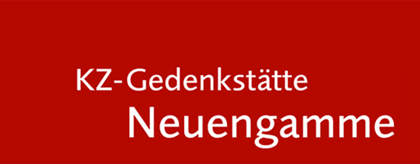03/10/2019 Event
Future of Remembrance Forum 2019
The 5th Future of Remembrance Forum 2019 focuses on the perspective of the heterogenous group of descendants of victims and survivors of Nazi persecution on developments within national and international remembrance culture. We will address the following topics:
- the socio-psychological needs of descendants,
- the interplay between these needs and the role descendants have played in the discourse on the culture of remembrance over the past decades as well as
- the role of descendants in national and international politics regarding the commemoration of victims and survivors of Nazi persecution both on a macro and a micro level.
The Forum will begin with “The Double Inheritance: Persecution, Collaboration and Silence in Families”, a public panel discussion, on the evening of April 30. It will be held in cooperation with the Körber-Stiftung. Ekaterina Makhotina, Nicole Duijkers and Jörg Watzinger discuss with Oliver von Wrochem how societies and individual families in different European countries deal with persecution, collaboration and perpetration, particularly regarding families in which there are both victims and survivors of Nazi persecution and Nazi perpetrators or collaborators respectively.
A central topic addressed during the panel discussion and the two ensuing conference days are the contradictions in the culture of remembrance, the continuing marginalization of certain groups of victims of persecution and their descendants as well as the question how social and family history and sustainable educational work can be brought together in a productive manner.
The last topic plays a particularly important role during the presentations of projects focusing on the exchange of ideas between young adults and descendants of victims and survivors of Nazi persecution from different European countries. In these projects the descendants are chroniclers as well as agents of post-1945 history.
Furthermore, we focus on forms of cooperation between descendants of victims and survivors of Nazi persecution, memorial staff and representatives of other institutions working in the field of remembrance culture as well as descendants of followers and Nazi perpetrators. One central aim of this section is to reflect on the participants’ individual biographies as a motivating factor in their dedication to the culture of remembrance and the societal effects of this dedication.
Comparing dialogue meetings between descendants of victims and survivors of Nazi persecution and descendants of Nazi perpetrators with dialogue projects from other post-conflict societies allows for insights into innovative forms of dealing with the effects of dictatorship and violence.
Participants, among them the representatives of survivors’ associations and descendants of former prisoners, memorial staff and representatives of associated organizations, descendants of Nazi perpetrators, young people and other interested individuals will discuss the following questions and initiate new projects:
- The socio-psychological needs of descendants of victims and survivors of Nazi persecution and differences and similarities between the different groups of descendants will be discussed together. Beginning with services that are already available, we will develop ideas on how memorials and other institutions can better support descendants in the future.
- The descendants of victims and survivors of Nazi persecution whose experiences were marginalized in the post-war decades, for example, those persecuted as “asocials”, members of the minority groups of the Sinti and Roma and victims of “euthanasia”, will share their stories of fighting against the continuation of persecution and for recognition.
- Considering the different levels of influence that descendants of victims and survivors of Nazi persecution have on the national and international culture of remembrance, we will present projects from the field of politico-historical educational work that highlight the perspective of the marginalized groups of victims of Nazi persecution and their descendants.
- Students from Hamburg will present the results of their project about descendants of victims and survivors of Nazi persecution.
- Participants of dialogue projects for descendants of victims of Nazi persecution and descendants of Nazi perpetrators as well as facilitators of dialogue projects from other post-conflict societies discuss how their work can contribute to meeting the socio-political needs of descendants as well as benefit society in dealing with the experience of violence.
About the Event
The event will be simultaneously translated into German, English and Polish.
All participants are required to register. Registration fee is 60 € (30 € reduced). In order to register please contact Nathalie Döpken, Neuengamme Concentration Camp Memorial, Centre for Historical Studies, Tel.: +49 (0)40 428 131 543, Email: Studienzentrum@bkm.hamburg.de


